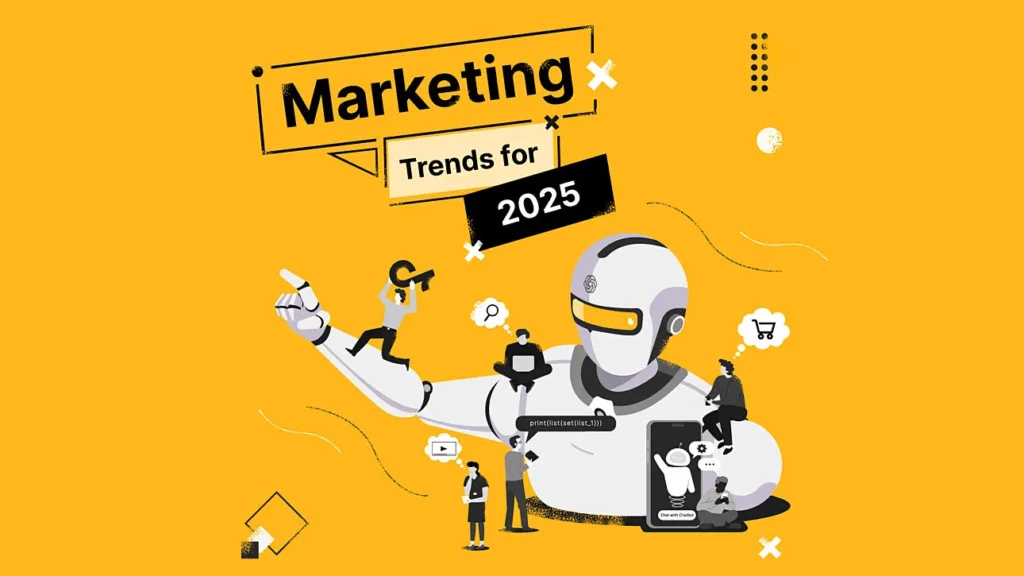Top 10 Digital Marketing Blogs to Follow in 2025
In the ever-evolving world of digital marketing, staying updated is non-negotiable. Whether it’s mastering the latest SEO strategies, exploring new social media trends, or creating compelling content marketing campaigns, knowledge is your strongest ally. Thankfully, digital marketing blogs act as a treasure trove of insights, tips, and strategies to help marketers and businesses succeed. Here’s a list of the top 10 digital marketing blogs you must follow in 2025 to stay ahead of the competition. 1. HubSpot Blog Website: www.hubspot.com/blog The HubSpot Blog is a powerhouse of resources for marketers focusing on inbound marketing and CRM strategies. Known for its actionable advice and extensive resources, it’s perfect for those who want to grow their business through content creation, automation, and customer retention. Core Topics Covered: Inbound Marketing: How to attract and retain customers with effective strategies. Marketing Automation: Learn how to streamline your campaigns with HubSpot tools. Data-Driven Marketing: Tutorials on using analytics to measure campaign success. Why HubSpot Blog Stands Out: Comprehensive Content: Covers topics for beginners and advanced marketers. Free Tools: Downloadable templates, checklists, and marketing frameworks. B2B and B2C Focus: Offers tailored advice for businesses of all kinds. Pro Tip from HubSpot Blog: Invest in personalization. Tailored content and campaigns based on customer behavior can significantly boost engagement and conversions. 2. Neil Patel Blog Website: www.neilpatel.com/blog Neil Patel’s blog is synonymous with digital marketing excellence. Whether you’re a seasoned marketer or a novice, Neil Patel simplifies the complexities of SEO, content marketing, and analytics into digestible insights that can be implemented immediately. Core Topics Covered: SEO Mastery: From keyword research to technical SEO. Content Optimization: Crafting high-converting blog posts. Social Media Strategy: Using platforms like LinkedIn and Instagram effectively. Why Neil Patel Blog Stands Out: Step-by-Step Guides: Practical advice you can act on immediately. Tool Integration: Learn how to use tools like Ubersuggest to enhance your marketing. Case Studies: Real-world success stories that provide actionable insights. Pro Tip from Neil Patel Blog: Focus on voice search optimization as more users rely on virtual assistants like Siri and Alexa for queries. 3. Moz Blog Website: www.moz.com/blog Moz Blog is the go-to resource for SEO enthusiasts. With in-depth articles, tutorials, and analysis, it helps marketers navigate the often-intimidating world of search engine algorithms and rank optimization. Core Topics Covered: Algorithm Updates: Insights into how to adapt your strategy. Local SEO: Tips for ranking higher in local searches. Link Building: How to earn high-quality backlinks. Why Moz Blog Stands Out: Community Engagement: Forums and Q&A sessions for peer-to-peer learning. Technical Focus: Advanced tutorials on topics like schema markup and page speed optimization. Pro Tip from Moz Blog: Prioritize mobile-first indexing by optimizing your website for mobile users to improve rankings and user experience. 4. Content Marketing Institute (CMI) Website: www.contentmarketinginstitute.com Content Marketing Institute (CMI) is the ultimate resource for businesses that prioritize storytelling and audience engagement. With its rich repository of guides and case studies, CMI empowers marketers to craft meaningful campaigns. Core Topics Covered: Content Strategy: Planning and executing long-term campaigns. Video Marketing: Tips for creating engaging videos. Measuring ROI: How to track the success of your content. Why CMI Stands Out: Industry Events: Access to exclusive conferences like Content Marketing World. Thought Leadership: Articles from industry experts offering unique perspectives. Data-Driven Advice: Focus on metrics to optimize campaigns. Pro Tip from CMI: Repurpose your content across formats and platforms to maximize its reach and effectiveness. Suggested Visuals: Example content calendars. Infographics showing content performance metrics. 5. Search Engine Journal (SEJ) Website: www.searchenginejournal.com Search Engine Journal (SEJ) is a reliable source for breaking news and expert insights into search engine marketing, analytics, and digital advertising. Core Topics Covered: Google Algorithm Changes: Stay updated on what matters most. PPC Campaigns: Best practices for ads that convert. Social Media Advertising: How to optimize paid campaigns. Why SEJ Stands Out: Timely Updates: Covers the latest changes in search marketing. Expert Contributors: Insights from top marketing professionals. Detailed Case Studies: Real-life examples that inspire actionable strategies. Pro Tip from SEJ: Combine AI tools with traditional marketing techniques for faster data analysis and better decision-making. 6. Social Media Examiner Website: www.socialmediaexaminer.com Social Media Examiner is a trusted guide for navigating the ever-changing landscape of social media marketing. Core Topics Covered: Video Trends: How to use short-form content like Instagram Reels. Social Commerce: Selling directly through platforms. Community Building: Engaging your audience effectively. Why Social Media Examiner Stands Out: Focus on Trends: Covers emerging topics like AR and VR. Platform-Specific Advice: Insights for each social platform. Practical Tools: Tips for maximizing the impact of scheduling software. Pro Tip from SME: Experiment with UGC (User-Generated Content) to build trust and authenticity with your audience. 7. Copyblogger Website: www.copyblogger.com Copyblogger is perfect for marketers who believe in the power of words. It’s a must-follow for improving copywriting, email campaigns, and content marketing. Core Topics Covered: Headline Crafting: Writing attention-grabbing titles. Persuasive Copy: Techniques to boost conversions. Email Strategy: Maximizing open and click-through rates. Why Copyblogger Stands Out: Practical Examples: Learn from successful campaigns. Engaging Content: Easily digestible articles. Focus on Storytelling: Inspires meaningful connections. Pro Tip from Copyblogger: Always address a pain point in your content to keep your audience hooked. 8. MarketingProfs Website: www.marketingprofs.com MarketingProfs is a premier resource for marketing professionals seeking advanced education and actionable advice. Known for its training programs, workshops, and insightful blog posts, MarketingProfs caters to both B2B and B2C marketers, providing strategies that drive tangible results. Core Topics Covered: Marketing Campaigns: How to design, execute, and analyze multi-channel campaigns effectively. Email Marketing Excellence: Strategies to improve email engagement and retention. Data-Driven Decision Making: Tutorials on interpreting analytics for strategic growth. Content Development: Crafting compelling narratives that resonate with your audience. Why MarketingProfs Stands Out: In-Depth Training: Access to workshops and certifications tailored for marketers. Focus on Emerging Trends: Insights into AI in marketing, personalization, and customer journeys. Expert Contributors: Articles written by



